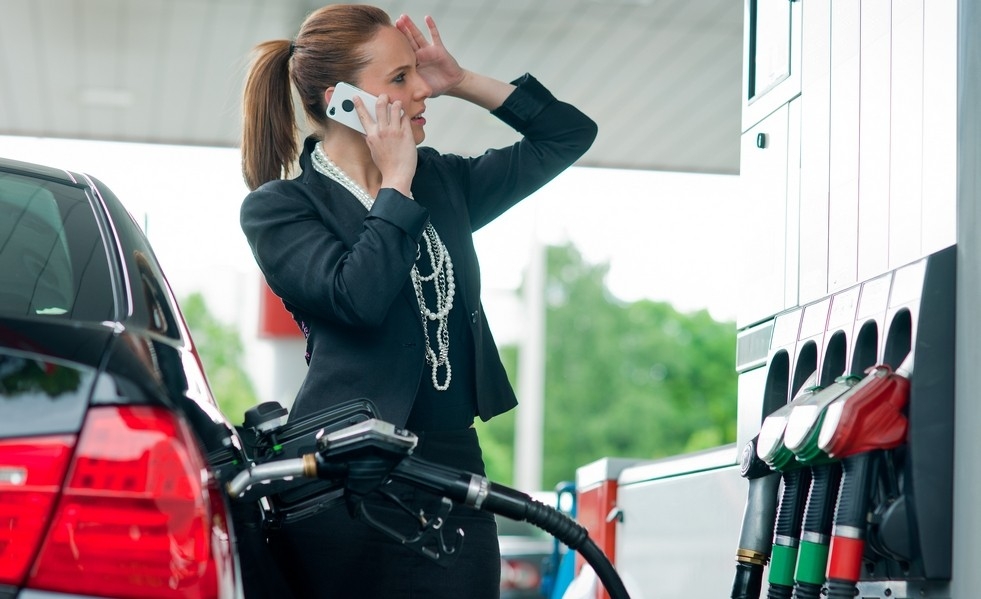Kostas Kappas, a professor at the University of Thessaly, explained why there is a ban on the use of mobile phones at gas stations.
In many international media, discussions are published on the topic: “Because of what, a car that has arrived at a gas station can catch fire”? And they themselves give the answer: “Because of the appearance of a spark, it is very close to the inlet of the tank when fuel is poured into it.” But this is a myth.
Just a few centimeters from the tank neck, fuel vapors are heavily diluted with atmospheric air so that flammability is below the limit.
What is a real danger and what is a myth
- Smoking (yes).
It is possible, although extremely rare, for unburned ash from a cigarette to fall into the mouth of the tank and cause a fire. - Static electricity in the mouth area (no). “Refill Pistol” and hose have a special protection that neutralizes static electricity. The probability of ignition is close to zero.
- Mobile phone (no).
The Internet is rich in comments about the possible dangers of using a mobile phone at a gas station. Many media outlets are not shy about using fabricated “facts” claiming that the use of a mobile phone allegedly ignited gasoline and falsely masqueraded as approval by Shell Chemicals.
This misinformation, which has become widespread among the populationforced the management of gas stations for marketing reasons (so as not to upset frightened customers) to ban the use of mobile phones when refueling cars.
What Science Says About Mobile Phone Use at Gas Stations
Basically, from the professor’s point of view, absolutely impossible to cause an explosion in the tank car, when fuel gets there due to alleged “emission of radio waves from a mobile phone during a call”.
The power of radiation emitted by the device is thousands of times lower than what is needed to produce a spark that could ignite gasoline.
British television showed the popular science show Brainiac, which made similar conclusions, which are absolutely agreed by many scientific associations (among them the Center for the Study of Wireless EM Compatibility at the University of Oklahoma, Exponent Failure Analysis Associates and the National Laboratory fire research center in the United States).
Potentially spark-producing moments such as pushing buttons on a phone, removing a battery, short-circuiting the phone’s battery terminals, and electrostatic discharge all “occur” inside the device, which has a protective casing (so that no flammable gas mixture can enter inside the mobile device when a person speaks on it).
Even if a mixture of fuel vapors with atmospheric air in any proportion enters the device there was no spark due to the particularly low charge potential of mobile phones.
Experience shows that Really proven facts have never been recorded in the world, talking about the ignition of fuel at a gas station due to the use of a mobile phone on its territory.
Conclusion
There is no scientific and technical basis for banning the use of mobile phones at gas stations or listing this “fact” as “potentially dangerous”.
But the cars themselves, since they have a number of potential ignition sources, are a real danger.
Worse, a lit cigarette at the filler neck when filling up is what’s really dangerous. And besides, it is a criminal offence.







More Stories
GMO Breakthrough: Pork Flavored Soybeans
Easter: strange Easter eggs and souvlaki lamps
The Thirty Years of Olive War is over